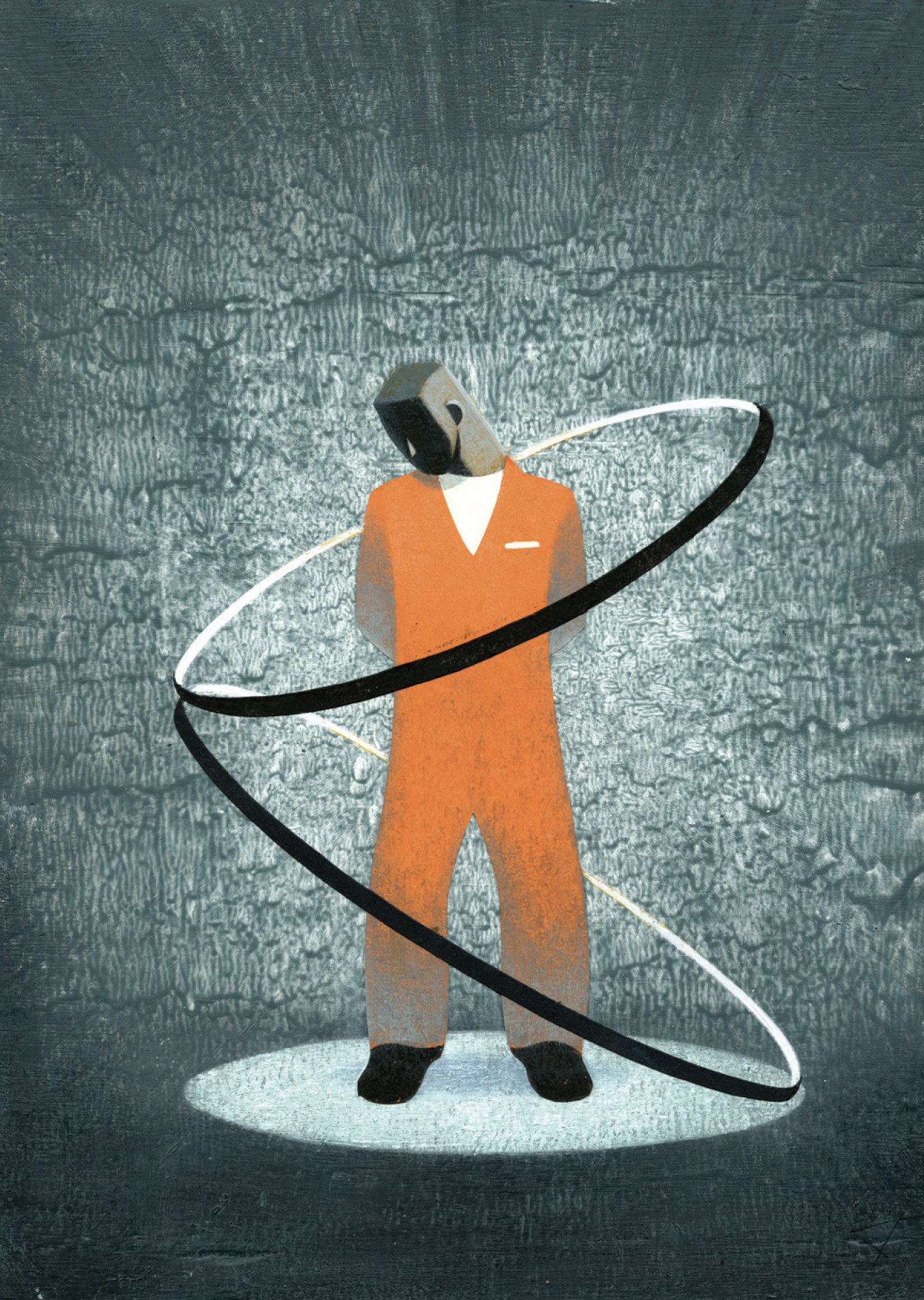Health policy intersects with many areas of life, but we often neglect the connection between health policy and criminal justice. They are related to each other in deep and important ways, and precisely for this reason, it’s important to think how improving one might improve the other.
Their connection is driven, in part, by sheer force of numbers. The number of Americans in prison has grown enormously over time. In 2010, there were over 2.4 million prisoners and parolees under supervision, roughly eight times more than there were in 1968. The U.S. remains, by a wide margin, a world leader in its incarceration rate. If you translate the incarceration rate—representing the number of current inmates—into the number of former inmates, the number is, of course, even larger. Most inmates serve relatively short sentences and are released while still in their 20s. Even allowing for recidivism and higher mortality among releasees, the total number of former inmates is large. In 2004, four million men were previously in prison or on parole. Considering both current and former inmates together, about 5.5 percent of adult males and an astonishing 17 percent of adult black males are or were in prison.
The growth of the prison system is creating a large number of vulnerable individuals. Of course, the vulnerabilities of many former inmates stretch well beyond their incarceration per se, so it’s worth asking if incarceration adds more beyond poverty, for example. The evidence suggests a criminal record makes things worse, often much worse.
This is no less the case with respect to health and health care. Although inmates are provided health care in prison and many report improvements in health as a result, the availability of coverage after they are released is much more limited, as are their opportunities in many other areas of life.
This is important for a number of reasons. Many former inmates struggle to find employment, especially the sort of employment that provides health benefits. Others struggle to reenroll in Medicaid after their benefits are terminated (if they are eligible). Moreover, all this happens when former inmates need health care most. Former inmates tend to suffer from more health problems than those without a history of incarceration, and at least some of their problems result from incarceration itself. Furthermore, former inmates tend to suffer from the type of health problems that present serious hurdles to reentry. Psychiatric disorders are common and, if left untreated, can increase the likelihood of reoffending. This is especially the case for substance abuse and impulse control disorders, but other psychiatric disorders play no less of a role in reentry (if not reoffending) and are often neglected. Our own research suggests that major depression is common among former inmates, that a prison sentence makes depression worse, and that depression significantly increases disability in work and social domains. Society asks a lot of former inmates, often in the name of personal responsibility, but without providing some assistance for their health problems, all their other difficulties are multiplied.
Society asks a lot of former inmates, often in the name of personal responsibility, but without providing some assistance for their health problems, all their other difficulties are multiplied.
It would be one thing if we were talking only about the situation of former inmates, but they are not the only ones affected by the growth of the prison system. In sufficiently large numbers—as we see in states such as Texas and California—former inmates can affect the functioning of the entire health care system. This is not only a matter of state budgets, although states certainly spend a large part of their budget on prisons and health care. By law, no one can be denied services in an emergency room based on their ability to pay. For this reason, the uninsured often receive care through emergency rooms.
Incarceration adds to the equation. Incarceration increases the number of people who are uninsured, including family members who might ordinarily be insured through an employed breadwinner. But it also increases the demand for care insofar as former inmates return from prison either sicker than they were before or more aware of their existing health problems because of a mandatory health screening. With few other options available to them but with a recognized need for care, former inmates contribute to the burden of uncompensated care. Uncompensated care, in turn, affects the capacity of hospitals to provide a range of services to others.
The Affordable Care Act will likely improve the situation. Both the expansion of Medicaid and the creation of tax credits for low-income individuals will increase the availability of insurance among former inmates. In addition, recent federal legislation will address some of the particular needs of former inmates, including the Mental Health Parity and Addiction Equity Act. Yet the success of the ACA depends on its roll-out. Some of the states that are choosing not to expand Medicaid are also states that incarcerate a large number of their residents.
In addition to political influences, some cultural influences won’t help matters. We tend to regard criminal justice and health care in very different ways. Criminal justice is about public safety, sanctioning, and social control. Health care is about treatment, prevention, and care. Furthermore, the behaviors behind health and crime are interpreted in very different lights. We tend to regard criminal behavior as a choice, whereas we regard poor health as an accident or at least something that is worthy of treatment regardless of its cause.
Yet there are reasons for optimism. Indeed, criminal justice is increasingly a “purple” issue. Support for reducing the size of prisons, for instance, is a rare issue that attracts support from both the left and right, from Bernie Sanders to Grover Norquist. Some of this broad appeal, of course, reflects concern over reducing the financial obligations of state and federal agencies. Yet part also reflects genuine appreciation that we may have overcriminalized some offenses. At the same time, there is greater recognition that former inmates need more support than we usually provide them. In the end, enthusiasm for reform is consistent with America’s deep support for second chances. The situation of former inmates will improve further when we recognize the role of health in creating opportunities and when we see the connection between the situation of former inmates and functioning of the health care system more generally. Inmates may be locked up, but no matter what we do, they remain part of the social fabric.
Jason Schnittker is a professor and the undergraduate chair in the Department of Sociology.




